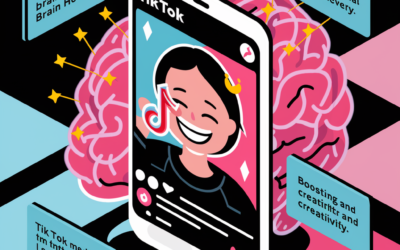The Chimp Model: A Fascinating Insight into the Mind
At the heart of Dr. Peters' book is the Chimp Model, which divides the human mind into three components: the Human, the Chimp, and the Computer.
1. The Human: This represents the logical and rational part of our mind. It is responsible for our ability to think critically, plan, and make decisions based on facts and evidence.
2. The Chimp: The Chimp is the emotional and impulsive part of our mind. It reacts quickly to situations, often driven by emotions like fear, anger, and desire. Dr. Peters likens the Chimp to a primal, emotional creature that can hijack our rational thinking if left unchecked.
3. The Computer: The Computer is the storage unit of our mind, where all our beliefs, values, and experiences are stored. It draws upon this database to influence both the Human and the Chimp.
Dr. Peters' Chimp Model provides a simple yet powerful framework for understanding why we sometimes act irrationally or struggle with emotional reactions. He argues that by recognizing and managing the Chimp within us, we can lead happier and more fulfilling lives.
Practical Tools for Self-Management
One of the strengths of _The Chimp Paradox_ is its practicality. Dr. Peters doesn't merely provide a theoretical framework; he offers a range of tools and techniques to help readers apply the Chimp Model to their own lives.
1. The Mind Management Programme: Dr. Peters presents a step-by-step guide to managing your mind effectively. This program includes exercises and strategies to identify and manage unhelpful thoughts, develop emotional control, and improve decision-making.
2. The Chimp Toolkit: This toolkit includes tools for managing anxiety, anger, and other strong emotions. Dr. Peters explains how to recognize when your Chimp is taking control and provides strategies for calming it down.
3. The Inner Team: Dr. Peters introduces the concept of the "Inner Team," where the Human, Chimp, and Computer work together harmoniously. Learning how to align these components is key to achieving personal and professional success.
Real-Life Applications
What sets The Chimp Paradox apart is its real-life applicability. Dr. Peters' work has been instrumental in the world of sports psychology, helping athletes perform under pressure. He shares numerous case studies from his experiences working with top-level athletes, including the British Cycling Team and Liverpool FC. These stories illustrate how the Chimp Model has been used to overcome obstacles, manage emotions, and achieve peak performance.
Critique and Controversies
While The Chimp Paradox has garnered a substantial following and numerous success stories, especially from some of his clients like Olympic medalist Chris Hoy or 7 time world Snooker champion, Ronnie O'Sullivan, it's not without its critics. Some psychologists argue that the Chimp Model oversimplifies the complexities of human behavior and that the concept of a "Chimp" within our minds may be misleading.
Moreover, some readers find the book's terminology, such as "Chimp" and "Computer," a bit unconventional, which can be a barrier to fully embracing the model. However, Dr. Peters argues that using these terms simplifies the understanding of complex psychological processes for a wider audience.
In conclusion, The Chimp Paradox by Dr. Steve Peters is a thought-provoking and practical guide to understanding and managing the human mind. Its Chimp Model offers a valuable lens through which we can examine our thoughts and behaviors, helping us make more informed decisions and lead more emotionally balanced lives. While it may not be the ultimate solution to all of life's challenges, it provides a unique and accessible framework for self-improvement. Whether you're an athlete striving for peak performance, a professional seeking better emotional control, or simply someone looking to understand themselves better, this book offers valuable insights into the complexities of the human psyche. It's a compelling read for anyone interested in personal development and mental well-being.























